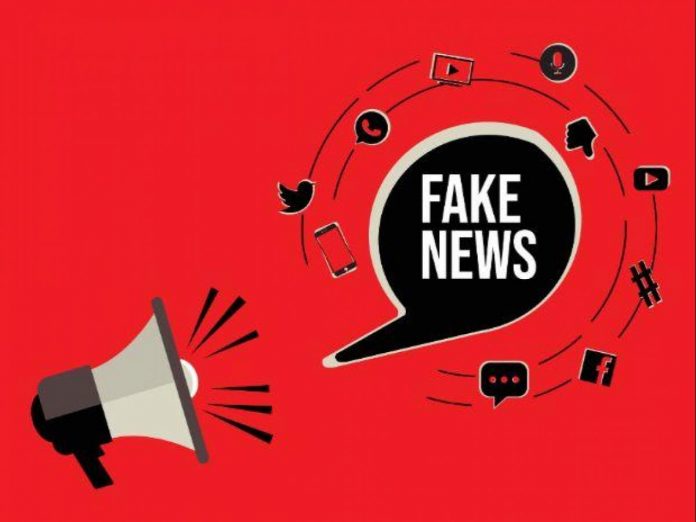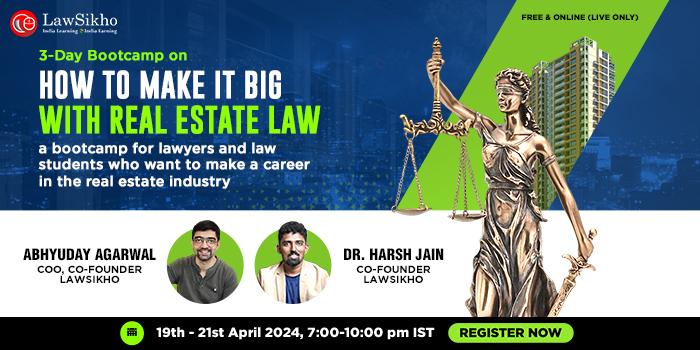This article is written by Lisa Coutinho, a student pursuing BLS LLB degree from Pravin Gandhi College of Law.
“Beware of false knowledge, it is more dangerous than ignorance”– George Bernard Shaw
Introduction
No doubt the outbreak of the Novel Coronavirus Disease (COVID – 19), which has brought the entire world to a standstill, poses a severe threat to human life, however, an equally dangerous and worrisome issue is the spread of false information in such difficult times. On 11th March 2020, the World Health Organisation (WHO) declared the Novel Coronavirus as a ‘pandemic’. Ever since the outbreak was first reported in Wuhan, China, social media has been flooded with overwhelming information regarding the same. It has been noticed that many of these posts are misleading. Countries worldwide have adopted various measures, not only to detect, treat, and stop the spread of the disease, but also to stop the spread of false information. The world is currently experiencing something known as the ‘information disorder’, where it is difficult to distinguish between true and false news. Tedros Adhanom Ghebreyesus, the Director General of WHO, in his speech at the Munich Security Conference, said that we are fighting an ‘infodemic’. He further stated, “False news spreads faster and more easily than this virus, and is just as dangerous”.
Havoc created by misleading information on social media
In the advent of the internet, and the era where every person is hooked to their screens, social media plays a significant role in disseminating information among the public. With over 300 million Facebook users, and 400 million WhatsApp users, a high level of engagement has been witnessed on these platforms, leading to incessant sharing of information and misinformation. According to the data portal: IndiaSpend, in India, fake news has led to 30 deaths per year since 2017.
The Covid-19 situation has given rise to many conspiracy theories wherein countries have been playing the blame game, by falsely holding each other responsible for the outbreak of the disease. Some conspiracy theories state that the virus is a man-made bioweapon, some say it was transmitted by bats, while some say it was created by china on purpose. Some even call it a modern-day war among countries. These rumours, however, have created nothing, but hatred among the people towards each other, giving rise to hate speeches. Many messages stating false symptoms, bogus remedies, inaccurate reports pertaining to the virus have been circulating. For instance, one message stated that applying sesame oil would block the virus, whereas one stated that one is supposed to be HIV positive to avoid contracting it. However, these messages are just fake rumours, without a factual base or a reliable source or theory, and can be risky for those who actually believe and follow it.
In India, the circulation of a fake news stating the extension of the lockdown for more than three months created such a panic among the labourers in the cities, that they started migrating to their hometowns. Some even lost their lives in the process. This issue was brought before the Supreme Court of India. Solicitor General, Tushar Mehra, raised the seriousness of the fake news issue. Many similar instances have occurred in the country which has endangered lives.
Steps taken by social media platforms to deal with the issue of fake news
Emergency situations like the present-day coronavirus pandemic calls for the dissemination of accurate information, and this is possible only with the strict regulation of the social media platforms. Dr. Mike Ryan, head of WHO’s Health Emergencies programme, at a WHO briefing on the virus, said, “We need a vaccine against misinformation”. This vaccine, however, will be effective only with the cooperation of social media platforms. It is their responsibility to filter out misleading information from their platforms and provide authentic data. On 20th March, 2020, the Government of India issued an advisory, urging all social media platforms to initiate awareness campaigns, remove misinformation, and promote authentic information related to the virus.
To show their support and cooperation to the government, social media platforms have taken various initiates to deal with the issue of misinformation. Some well-known initiatives are, the launch of a chatbot named ‘MyGov Corona Helpdesk’ by WhatsApp in partnership with the health ministry to provide accurate information; limitation on the forward of WhatsApp messages; ban on ads or listings selling corona related products like sanitizers, masks, etc; introduction of an in-app informational page by TikTok, in partnership with WHO and Ministry of Health and Family Welfare, to answer common questions and offer tips for staying safe from the disease; launch of #GharBaithoIndia campaign by TikTok to encourage citizens to stay at home.
Legislations
Apart from other measures, the government has brought into effect many provisions of various acts like the Epidemic Disease Act, the Disaster Management Act, etc. However, India doesn’t have specific laws to deal with rumours and false news. Yet, the law enforcement agencies have certain provisions in law under various acts to take action against those who spread fake news about the virus to create panic among the population.

Disaster Management Act, 2005
When the Government of India announced the 21-day lockdown in India to combat the disease, the Government also invoked the Disaster Management Act, 2005. It emphasized on two provisions of the act, namely sections 52 and 54.
Section 54 of the act penalises false alarms. The section states that “whoever makes or circulates a false alarm or warning as to disaster or its severity or magnitude, leading to panic, shall on conviction, be punishable with imprisonment for a term which may extend to one year or fine.”
Section 52 of the act penalises those who knowingly make false claims for obtaining any relief, assistance, repair, reconstruction, or other benefits consequent to disaster from any officer is punishable with imprisonment up to two years, and also a fine.
Indian Penal Code, 1860
IPC provide a framework to tackle fake news under several provisions, however the most apt in the current situation is Section 505 (1) which states that whoever makes, publishes or circulates any statement, rumour or report with the intention to cause, or which may likely cause fear or alarm, or incite the public whereby any person may be induced to commit an offense against the state or the public tranquillity, shall be punished with imprisonment up to three years, or with fine, or both.
Information Technology Act, 2000
Section 66 D of the IT act provides punishment for cheating by personation by means of any communication device or computer resources. Such offenders shall be punished with imprisonment for a period which may extend to three years, and shall also be liable for fine up to 1 lakh rupees. However, there is no concrete law to deal with the fake news menace.
Need for a comprehensive legislative framework.
The courts have time and again addressed their concerns regarding the misuse of social media. They have urged the government to come up with guidelines to deal with the issue, while expressing their incompetence in deciding such scientific issues. Moreover, the judiciary’s hands are tied because of the principle of separation of powers between the legislature and judiciary. The safe harbour provision under Section 79 of the Information Technology Act, 2008 which exempts intermediaries from incurring liabilities for unlawful acts done by its third party brings in the possibility of a lenient or even careless inspection of the data being circulated around.
Moreover, the recent Shreya Singhal v. Union of India case has exempted the intermediaries from incurring any liability for the content posted by the third parties. The court stated that the intermediaries should take down content only when directed by an appropriate government authority or by the courts. Otherwise, it would be difficult for intermediaries to decide the legitimacy of the complaints made by the parties due to the large amount of requests flooding in from third parties to take down contents. Thus, relaxing the liability of intermediaries, which in turn would bring in the possibility of negligence on their part. A balance needs to be struck between the two by studying it in entirety.
The closest that India has come in dealing with the issue is the Personal Data Protection Bill, 2019 and the draft Information Technology [Intermediaries Guidelines (Amendment) Rules], 2018. However, the Delhi government has taken action by constituting a committee named ‘Committee on peace and harmony’ which lays down guidelines and imprisonment of 3 years for anyone who spreads fake, inflammatory or hate messages. In the writ petition filed in the case of Alakh Alok Srivastava v. Union of India in the year 2020, the problems created by the spread of fake news was highlighted, with reference to the plight of the migrant workers. The Supreme Court emphasized on the dire need for spreading verified and accurate information via the issue of Government authorized daily bulletin through all the media avenues. With the havoc caused by rumours and misinformation, India is in urgent need of a comprehensive and efficient regulatory legal framework to deal with the fake news issue.

Freedom of speech and expression
There have been multiple ways through which governments in the past have tried to deal with this issue, though they proved to be ineffective and in violation of our rights. One such example is the shutdown of internet in Kashmir after the abrogation of art 370. However, the Supreme Court held that such a practice was in violation of the fundamental right to freedom of speech and expression under Art. 19 of the Indian Constitution. Thus, while framing the laws, it is necessary that the rights of individuals are not violated. With regards to the panic created by misinformation, the Supreme Court said, “We do not intend to interfere with the free discussion about the pandemic, but direct the media to refer to and publish the official version about the developments”.
Very often we notice that a dilemma arises with regard to balancing the right to free speech and tackling the spread of inaccurate and fake information. India has always found it difficult to maintain such a balance. Article 19(2) also imposes reasonable restrictions on this right. It imposes a few parameters in which the citizen’s right to freedom may be compromised. The main crux or intention of this provision was to maintain the public order, decency and morality. This should be applicable in this scenario as well. Spreading unauthorized information during such difficult times does harm the public order and just contributes to the panic among the public. Speech during these times should be efficiently regulated. We as citizens too should keep in mind our duty towards our country, and should not exceed our limits by misusing our rights. As it is famously said, “With right comes responsibility”.
Conclusion
The COVID 19 situation has no doubt created a lot of panic worldwide. Mainly because it is difficult to distinguish between the truth and falsity of the information being circulated around. The menace of fake news had caused many casualties in the country. Many epidemics and pandemics have occurred in the past. However, the easy access of social media has made a huge difference in such situations. It doesn’t take long for a particular news to spread and create chaos among the population. We have witnessed the death of many people as a result of fake news being circulated. These times call for solidarity among people. Any acts of disrupting the solidarity should be strongly discouraged.
No doubt our constitution has given us the freedom of speech and expression, however, it does not give us that right at the cost of the lives of other citizens. This right does not give us immunity to speak whatever we want. There has to be certain censorship on our speech. It is not the time to play the blame game or use our language to create any chaos. The spread of fake information is more dangerous than the pandemic itself. The measures taken by the government so far are not enough and not effective enough. An efficient and comprehensive legal framework is very much needed to combat the issue at hand.
LawSikho has created a telegram group for exchanging legal knowledge, referrals and various opportunities. You can click on this link and join:











